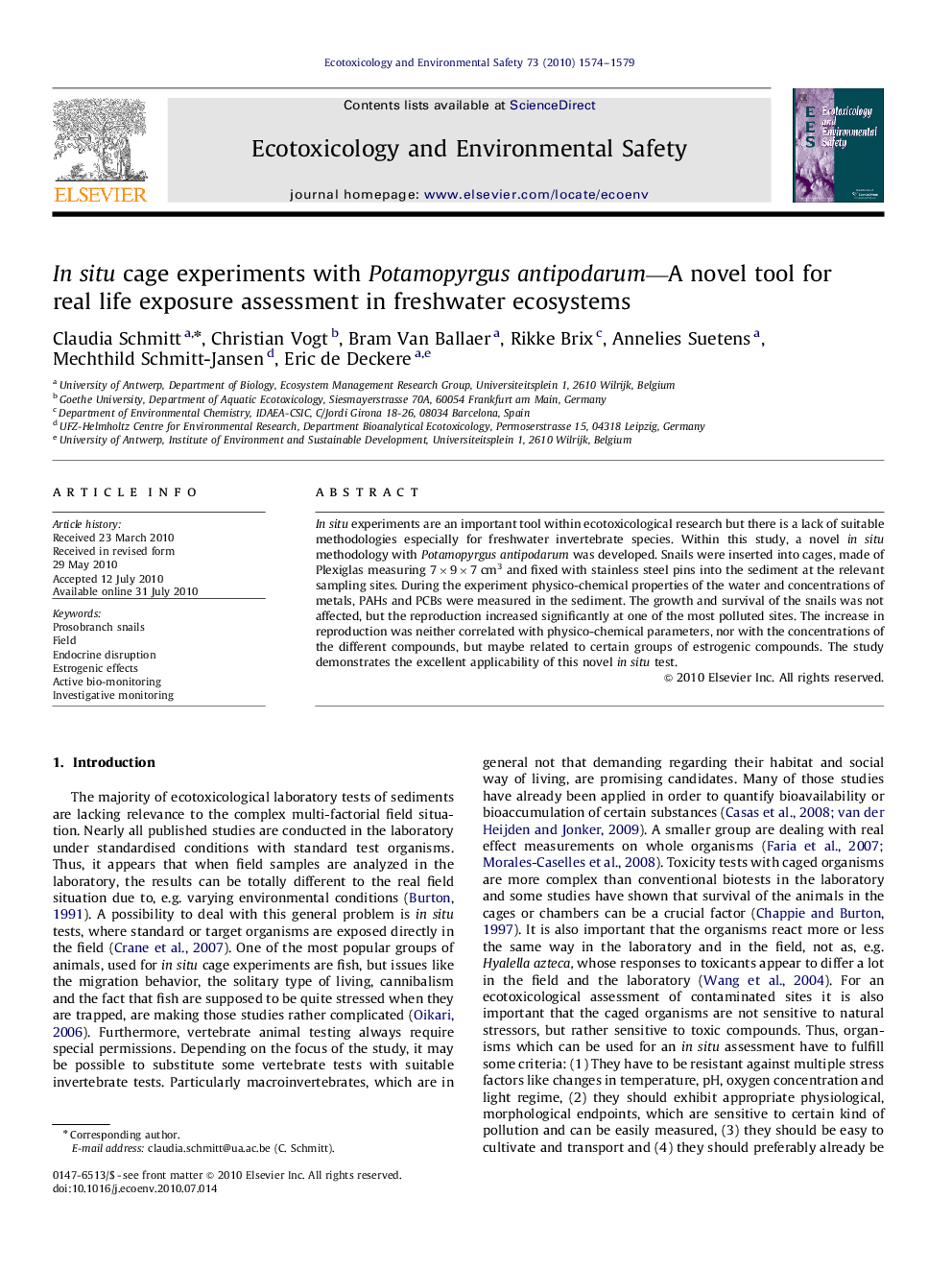| Article ID | Journal | Published Year | Pages | File Type |
|---|---|---|---|---|
| 4421709 | Ecotoxicology and Environmental Safety | 2010 | 6 Pages |
In situ experiments are an important tool within ecotoxicological research but there is a lack of suitable methodologies especially for freshwater invertebrate species. Within this study, a novel in situ methodology with Potamopyrgus antipodarum was developed. Snails were inserted into cages, made of Plexiglas measuring 7×9×7 cm3 and fixed with stainless steel pins into the sediment at the relevant sampling sites. During the experiment physico-chemical properties of the water and concentrations of metals, PAHs and PCBs were measured in the sediment. The growth and survival of the snails was not affected, but the reproduction increased significantly at one of the most polluted sites. The increase in reproduction was neither correlated with physico-chemical parameters, nor with the concentrations of the different compounds, but maybe related to certain groups of estrogenic compounds. The study demonstrates the excellent applicability of this novel in situ test.
